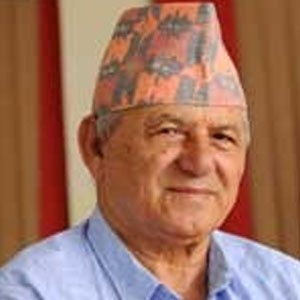Mr. Upendra Raj Sharma is the chairman for The Kandel Group.
Mr. Sharma, his deep insight into the evolution of Nepalese society, culture and growth provides the company with a key domestic viewpoint of Nepal within our current global infrastructure.
His total outlook on life comes from personal experience and the varied outcomes of his transversal endeavours. As Chairman, Mr. Sharma also considers the benefit for others not invited to the decision-making table.
A short note on the Chairman
Born one year after the 1934 Nepal-Bihar earthquake, Mr Sharma was raised in a nation striving to rebuild itself. He attended school in the “Gurukul” system, an ancient approach to education based on traditional and holistic values advocated by Eastern Asian philosophy.
This education sought to instill in its students a well-rounded framework to approach life. Mr. Sharma graduated from Dehradun University in 1956 with a degree in Sanskrit and started his career as a head teacher in Baglung, Nepal.
Mr. Sharma ran for mayor and was elected Head of Panchayat, Baglung in 1963. After his tenure in public office, he relocated to the city of Chitwan to enter the business sector. Mr. Sharm started and ran various companies such as a local brick factory and an oil factory.
Following his commercial success, 1976; Mr. Sharma returned to politics, wishing to further the cause of democratic rights for Nepalese citizens. Eventually, Mr. Sharma became a ministerial advisor to the executive committee of the party, the main opposition voice of the monarchical government.
In 1992, Mr. Sharma chose to focus on family life and relocated once more to Chitwan. He opened a local wholesale food trade, manufacturing and selling grains, pulses, spices, and other commodities. Mr. Sharma spent the next ten years striking a balance between his business and his busy family schedule, allowing him and his wife to devote themselves to their children. The Sharma aspired to equip their children with traditional Nepalese values of compassion and individual purpose.
His commitment to society’s welfare and prosperity is reflected in the family’s professional engagements. At present, the family operates modern colleges in Nepal.

